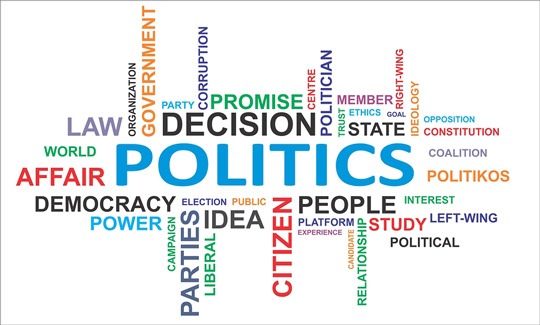The view “Politics involves power” has led a number of political scientists of study the aspect of power in public life.
In contemporary life, the state is the embodiment of ultimate power to rule, unhindered by the power of any higher authority. It marks a break to formal approach by emphasizing on informal aspects as well.
1. Definitions:
David Easton: “a relationship in which one person or group is able to determine the actions of another in the direction of the formers own ends”.
ADVERTISEMENTS:
Hans Morgenthau: “mans control over minds and actions of other men”.
H.V. Wiseman: “ability to get one’s wishes carried out despite oppositions”.
Robert Dahl: “a relationship among actors in which one actor induces other actors in some way they would not otherwise act”.
ADVERTISEMENTS:
Stephen L. Wisky: “involves bringing about of an action by someone against the will or desire of another”.
Max Weber: “the ability to get one’s wishes carried out despite opposition”.
The centrality of power has been acknowledged by both; the Liberals and the Marxist. But they differ in the source or location of power. Power is essentially a relationship of domination and subordination. It is a relative concept and depends upon the capacity to influence others. It is observed by studying its effects. State or government is repository of ultimate power with a legitimate right to use force.
2. Forms of Power:
I. Political Power:
Political power refers to power emanating from or deposited in the political institutions. While power of the government is formal political power, pressure group and public opinion are sources of informal political power. To the Marxists, political power is wielded by ownership of the means of production.
II. Economic Power:
ADVERTISEMENTS:
The role of economic power has been highlighted mainly by Marxists. However, in contemporary time none can deny that the possession of material things confers decisive/.power to its holders. Perhaps, economic -power remains the main form of power in capitalist societies.
III. Ideological Power:
It denotes the power of justification and condemnation by reference to a coherent doctrine. Its role has been highlighted by Italian Marxist, Autonio Gramsci. To him, the capitalism has survived in the west because it has been able to express ideological hegemony in the institutions of civil society.
3. Authority:
Authority is that form of power which is based on legitimacy. Authority is said to be legitimate if it springs from people on how they look at the social world and what they think to be morally right.
Max Weber, a well known German sociologist classified authority into following types:
I. Traditional Authority:
It was characteristic feature of most of the earlier societies. It was based on custom and tradition of the society.
II. Charismatic Authority:
The basis of charismatic authority is the characteristic attribute of the leaders. A leader by virtue of his attractive personality may attain leverage in the political process.
III. Legal-Rational Authority:
This kind of authority is a characteristic feature of the modern societies. As he observes, “submission under legal authority is based upon an impersonal bond to the generally defined and functional ‘duty of office’.
It can be observed that power and authority constitute the core of political life. Much of the debate on science of politics revolves round these two concepts and they cannot be easily sidelined in any discourse on politics. The task of political scientist is to attune power to be more legitimate.

